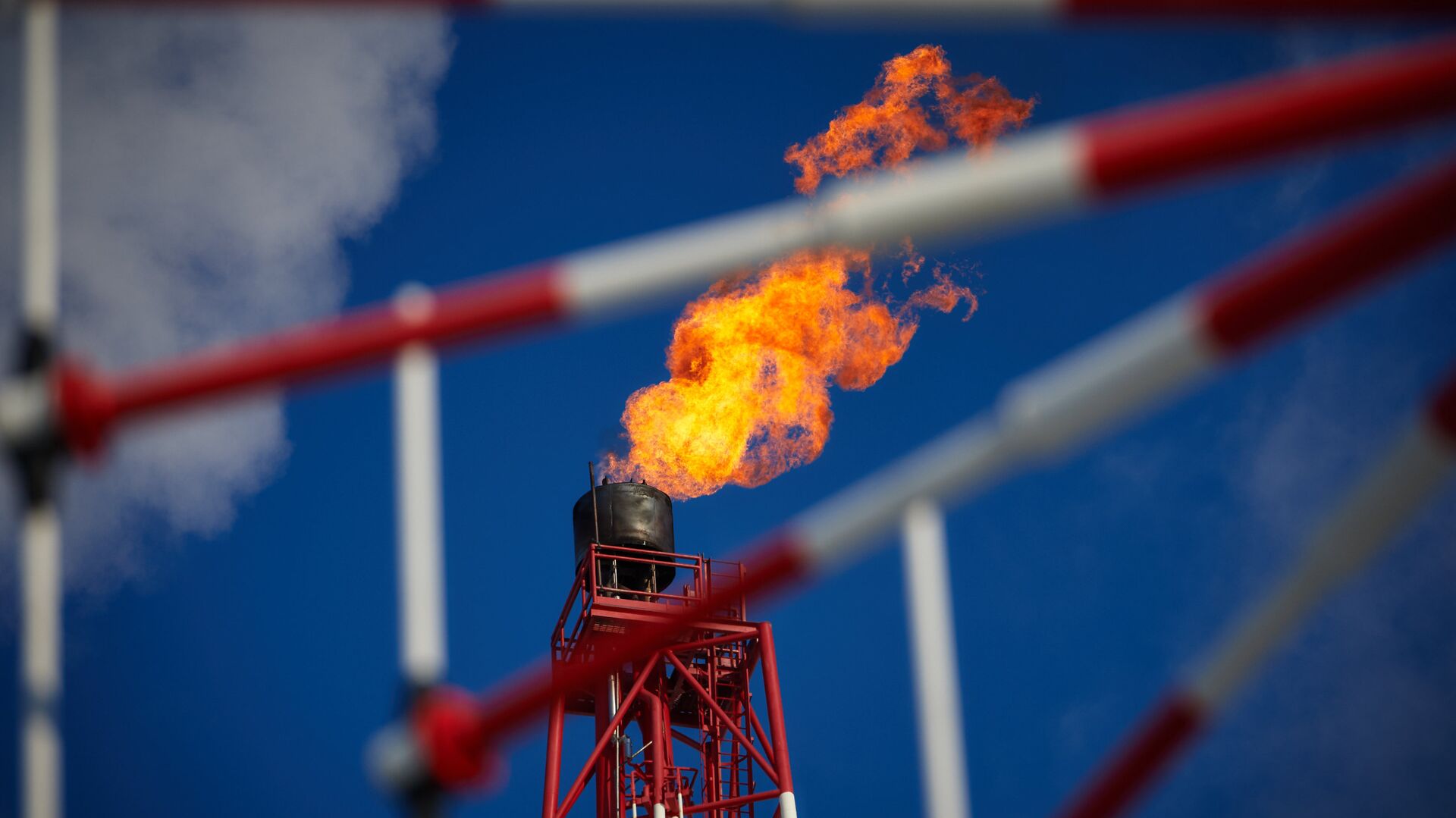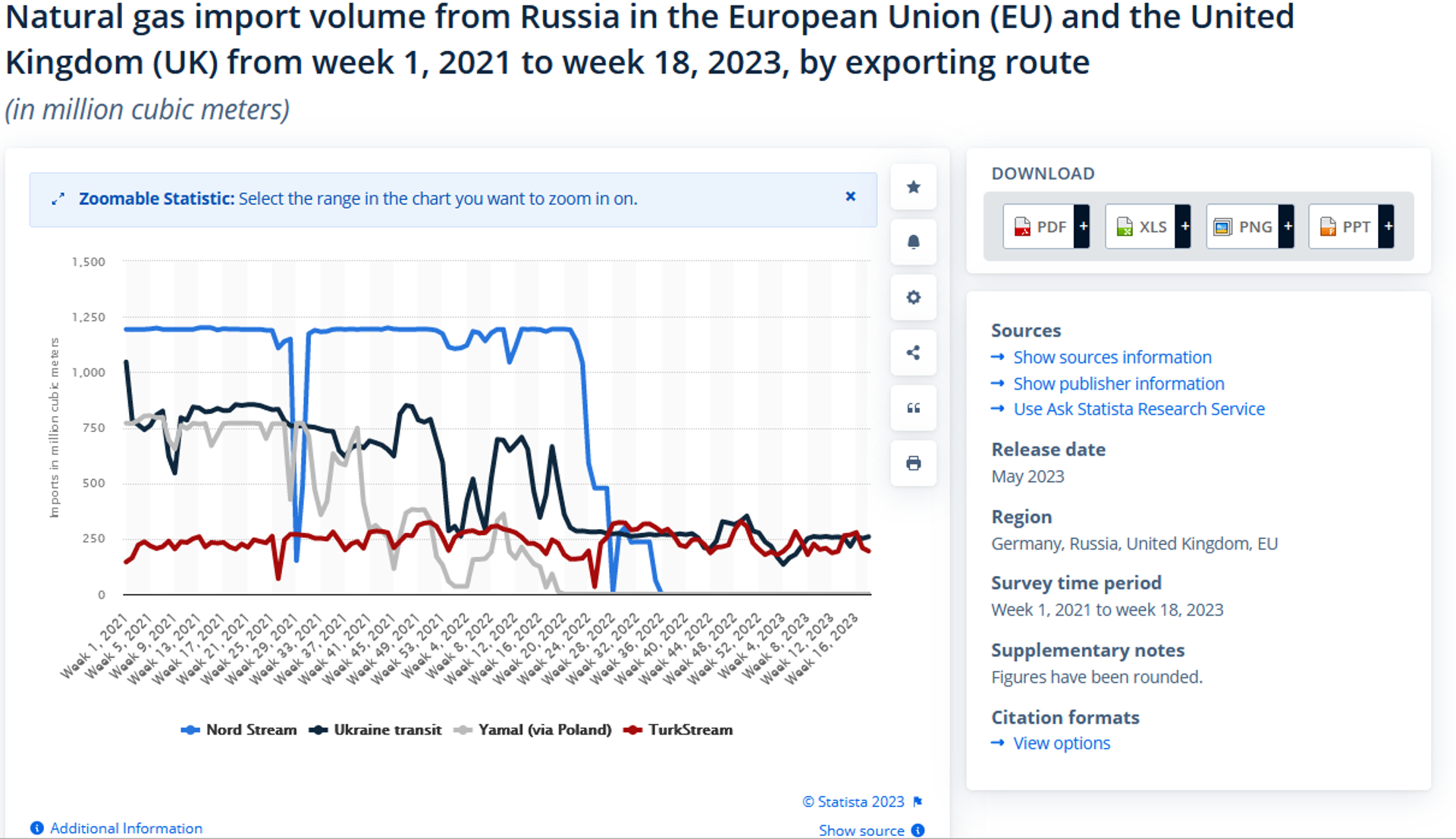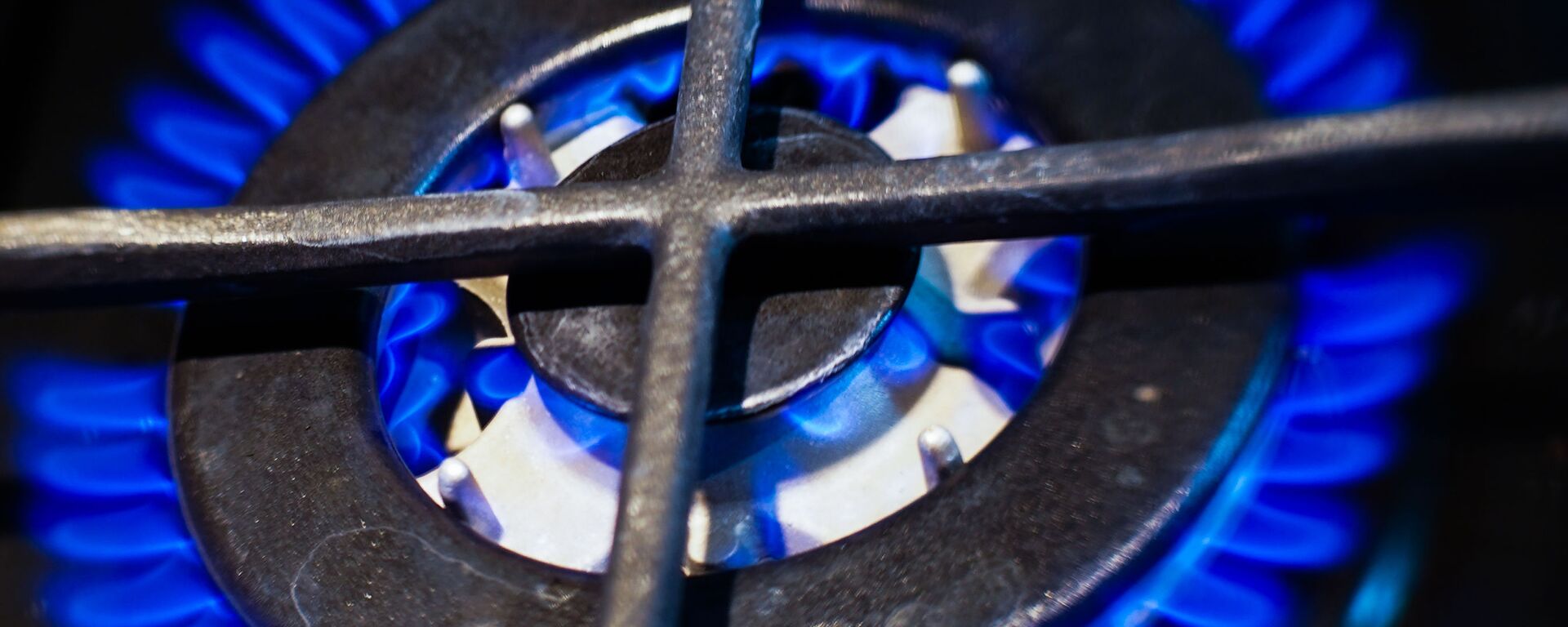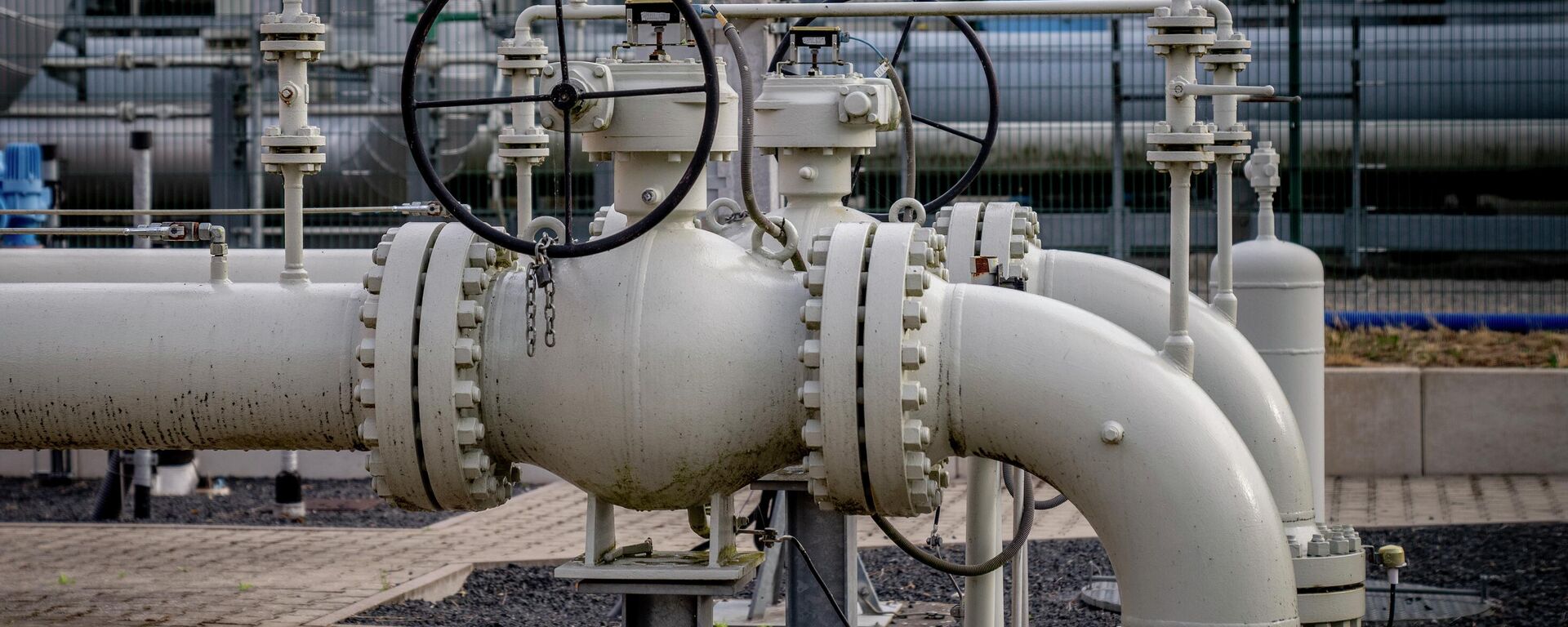German Industry Gravely Threatened by Loss of Russian Gas Pipeline Lifeline
17:37 GMT 13.06.2023 (Updated: 17:41 GMT 13.06.2023)

© Sputnik / Alexei Danichev
/ Subscribe
Berlin has indicated that its industrial base could come to a standstill if one of Europe’s last remaining Russian energy lifelines – a natural gas pipeline running through Ukraine, were cut off. Sputnik reached out to a pair of experts on energy and German politics for their takes on the country’s energy crisis and its implications for Europe.
“There is no secure scenario for how things will turn out,” German Economy Minister Robert Habeck said at an economic forum near Berlin on Monday, referring to Germany’s commitment to an energy burden sharing agreement which requires the country to export gas to other EU nations to offset potential deficits, thus potentially leaving local industries in the lurch.
The minister, who ordinarily blames Moscow for Europe’s energy shortfall, offered an unusually lucid suggestion that European policymakers avoid “making the same mistake again” in assuming that the economy would simply adjust natural if alternative energy supplies weren’t found.
Central Europe presently continues to depend on the Soyuz - the oldest and smallest of the five major Russian natural gas pipeline serving the bloc, for much of the gas it gets from Russia after Poland unilaterally shut down Yamal-Europe, and since Nord Stream, the massive, pipeline network running from Russia to Germany via the bottom of the Baltic Sea, was damaged in a US sabotage attack last fall. Soyuz, which runs through Ukraine, has the capacity to pump about 26 billion cubic meters (bcm) of gas annually – just a fraction of Nord Stream’s 110 bcm/year, or Yamal-Europe’s 33 bcm/year. The Soviet-era pipeline, together with TurkStream (which can pump up to 31.5 bcm/year), helped Russian energy partners in Europe take some of the sting out of the spike in energy costs caused by the EU’s wider rejection of Russian energy supplies.
The Russia-Ukraine gas transit deal involving Soyuz is one of few major agreements which somehow withstood the collapse of Russian-Ukrainian relations after the long-running Donbass crisis escalated into a full-blown NATO-Russia proxy war last year. The existing agreement is set to expire in December 2024, and there has been widespread speculation about its future, particularly after Ukraine’s destruction of a massive ammonia pipeline, and the flooding of wide swathes of Kherson region following an attack on the Kakhovka hydroplant’s dam last week.
Berlin announced in January that it has completely diversified its energy supplies away from Russian natural gas, finding alternatives to Russian imports from “global markets.” Other European countries can’t boast the same, with EU members plus the UK continuing to import vast quantities of Russian gas via the remaining available routes.

Russian natural gas exports to Europe using four major routes.
© Photo : Statista
German industrial leaders have been warning about the consequences of a lack of Russian energy in Germany and Europe since spring 2022. In May of that year, President Putin expressed his amazement at his European counterparts readiness to introduce “suicidal” restrictions on Russian energy all for the sake of accommodating their “American overlords,” warning that the measures would strip European industry of its competitiveness vis-à-vis global competitors like the US and China.
And that’s exactly what has now begun to take place, says Dr. Thierry Bros, a professor at the Paris Institute of Political Studies, and contributor for Natural Gas World, an independent website specializing in energy affairs.
“The very short answer is, Germany is in recession. Germany is in recession and has put the Eurozone into recession,” Bros told Sputnik.
“I mean if you go back to the last six months in Europe, we were very ‘happy’ about our ability to be able to mitigate or do without Russian gas, to mitigate the Russian disruption. But this has entailed extreme high prices and demanded destruction and recession,” the researcher said.
'Energy Transition' Worsening Crisis
Part of the problem, Bros says, is that ordinary Germans have agreed to a series of radical steps by their government related to energy, including the mass closure of nuclear plants, hundreds of billions of euros in subsidies for renewable energy, all without actually “achieving any kind of reduction in CO2.”
“So I think the outcome here, what we are seeing, is a wake-up call for the population of Germany, and they have two paths here. One is to continue with the folly of the ‘energy transition’ with only wind and solar, without nuclear, without whatever. And in this case, this is the beginning of the deindustrialization of Germany. The other one is, well, Germany has to wake up. They have to understand that you cannot be a rich country if you do not master energy production either on your own land, anyway you have sovereignty dealing with it,” the researcher said.
Bros admitted that he’s uncertain about Germany’s economic future in light of its current trajectory, saying the country may become the “first” nation in modern history to commit “hara-kiri” and plunge into a five-year recession due to its foolish energy policy.
Dr. Christian Blex, a lawmaker in the state parliament of North Rhine-Westphalia, from the opposition Alternative fur Deutschland (AfD) party, fears it may already be too late.
“The high energy prices are quite simply threatening the existence of German industry,” Blex told Sputnik. “Together with the price of gas, the so-called ‘green energy transition,’ i.e. the replacement of conventional and cheap electricity production with expensive and random electricity production using wind and photovoltaics, has led to a catastrophic cost explosion for electricity. German industry is therefore no longer competitive. Traditional companies like BASF have announced that they will relocate their production from Germany.”
Unfortunately, Blex says, “instead of opening its eyes to reality,” the government continues to stick to its fairy tale energy policy.
“Economics Minister Habeck from the Greens, who had previously been a children’s book author, came up with the really crazy idea of wanting to massively subsidize the industrial electricity price. Such an insane subsidy on the backs of the remaining taxpayers can really only come from the minds of children’s books authors. It has nothing to do with reality,” Blex stressed, referring to the proposed subsidy initiative announced by Habeck last month, which offers a €25-30 billion energy subsidy package for industry to the year 2030.
German Sovereignty Limited
Asked whether Kiev could be pressed into renewing the gas transit agreement with Russia, and thus assuring Europe’s future energy security, Blex said it depends on who’s asking.
“The Kiev regime is entirely dependent on financial and military support from the US and its client states. If the USA understands that without an extension of the transit agreement there could be unrest in its European client states, it will influence its politicians in Kiev accordingly,” he said.
On the other hand, Blex doesn’t believe Berlin can exert “any” pressure on Kiev independently, because “to do this, our government would have to free itself from the intellectual vassalage to the USA and reorient itself towards the interests of our citizens.”
Dr. Bros has a different view, suggesting that because the Russia-Ukraine gas transit agreement is fundamentally a “political deal,” Kiev will likely have little incentive to renew it. “At the end of the day, the answer to this question is going to be answered by [Volodymyr] Zelensky himself,” he said.
In any event, Germany’s “energy illiteracy” carries a price, Bros says, including reduced political and economic clout within the European Union. “You are the center of the world as long as you have the power to do it…[Germany] only had economic power. Without it this is the end of Germany as the economic engine of Europe,” the researcher summed up.




